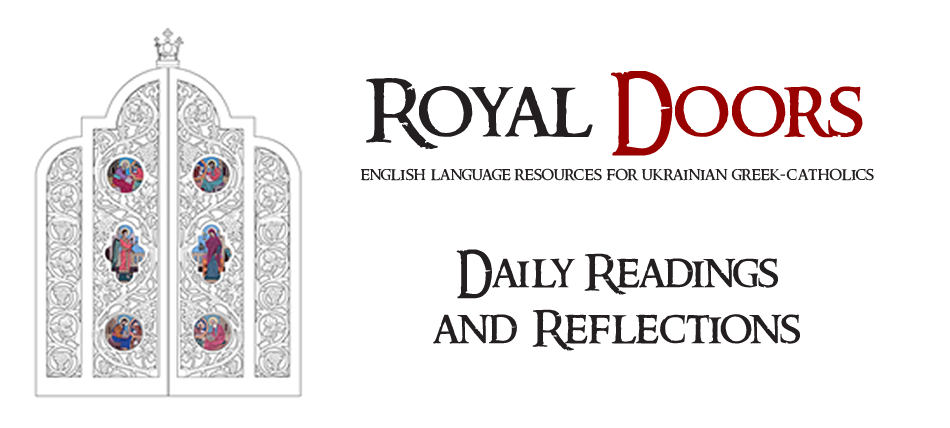by Brent Kostyniuk
A young lady told me that one of her most poignant memories of her father was watching him make hamburger patties one day. The meat was still partially frozen and it was obvious his hands were suffering from the cold. She asked him why he was doing it if it hurt so much. He replied, “If I don’t do it, it won’t get done.”
Life is like that. We are often presented with situations which, if given the choice, we would rather avoid. I used to feel that way about Lent, or the Great Fast as it is known in the East. It seemed to be a mournful time when treats were given up and food was plainer than usual. I especially didn’t like to have to think about the end of Lent, the time of Jesus’ passion and death.
Of course, like so many other things, I got it wrong. True, Lent does involve additional fasting from meat, on Wednesdays, as well as the usual Fridays. Monday, the first day of Lent and Good Friday are held as a black fasts; no meat or dairy products are eaten. However, the whole concept of fasting should not be viewed as an imposition. Rather, and this took me a long time to appreciate, fasting is a spiritual exercise. Its purpose is to remind us the needs of the body are nothing compared to the needs of the soul, “…in order to show you that not by bread alone does man live, but by every word that comes forth from the mouth of the Lord.” Deuteronomy 8:3 The passage, referring to manna from heaven, was later quoted by Jesus in Luke 4:4 when the devil tempted Him to change a stone into bread.
The spiritual exercise of fasting helps us to understand we need God, Who provides everything for both the body and the soul. Fasting teaches us to depend on God more fully. It helps us to enter the spirit of kenosis – self emptying – the self emptying of one’s own will and becoming entirely receptive to God’s divine plan.
Fasting is meant to aid us on our spiritual journey. It helps us pray more easily. An empty stomach helps us to have compassion for the poor and hungry. Moreover, fasting from food, or a particular item such as chocolate, during Lent reminds us we are also to fast from sin. Indeed, Saint John Chrysostom teaches that fast from sin is far more important than fast from food. “Besides controlling what goes into our mouths, we must control what comes out of our mouths as well. Are our words pleasing to God, or do we curse God or our brother? The other members of the body also need to fast: our eyes from seeing evil, our ears from hearing evil, our limbs from participating in anything that is not of God. Most important of all, we need to control our thoughts, for thoughts are the source of our actions, whether good or evil.”
The Prayer of Saint Ephraim the Syrian, traditionally said frequently throughout Lent, helps us to take control of our actions.
O Lord and Master of my life, take from me the spirit of sloth, faintheartedness, lust of power, and idle talk. But give rather the spirit of chastity, humility, patience and love to your servant. Yes, O Lord and King, grant me to see my own sin and not to judge my brother, for You are blessed from all ages to all ages. Amen.
Just as we accept the burden of fasting, often our hands accept roles which are difficult, roles which we would rather have avoided but take on because we know if we don’t do it, it won’t be done. We take them on freely through love. As we go through Lent, gladly accepting fasting, we look at the hands of Jesus, nailed to the precious and life-giving Cross. We are reminded that He, too, struggled. “My Father, if it is possible, let this cup pass from me, yet not as I will, but as you will.” Matthew 26:39 Lovingly, He stretched out His hands for our salvation.
So I learned that Lent is not a mournful time. Rather, it is a time of preparation. All of our activities – fasting from food and sin, almsgiving, an intensified prayer life, emptying ourselves to the will of God all serve to help us prepare, to focus on the great event which awaits us, the Resurrection of Christ. Thus, having “put on Christ,” we will be able to rejoice on Easter and joyfully sing the troparion.
Christ is risen from the dead,
trampling down death by death,
and upon those in the tombs bestowing life!
This piece first appeared in The Prairie Messenger. Reprinted with permission.

